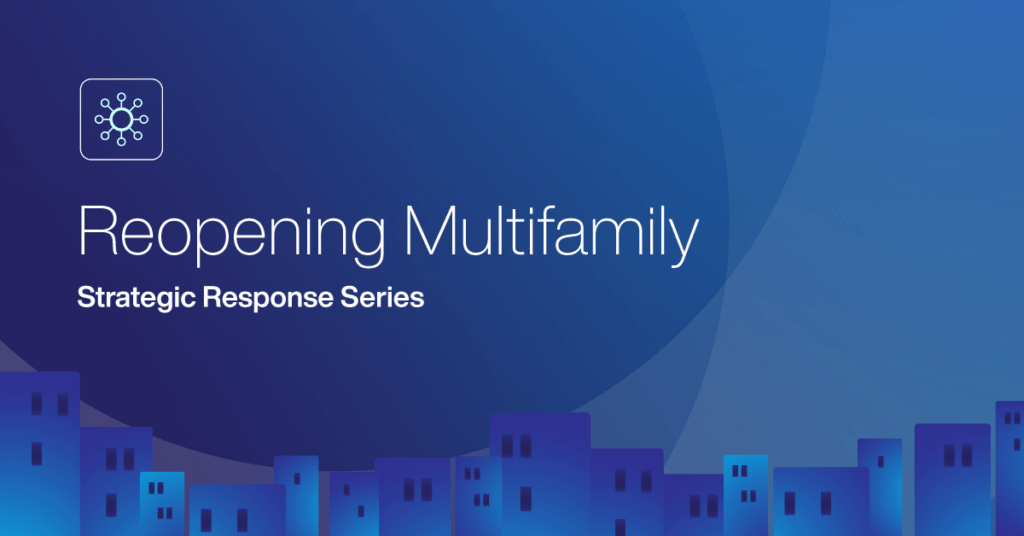Reopening Multifamily: Strategic Response Series – Part 1
Part 2 – Establishing New Leasing Practices
Part 3 – Resuming Amenity & Maintenance Services
Part 4 – Handling Rent Collection, Late Fees & Evictions
Multifamily companies across the country are working to implement new policies and practices that will help keep communities safe and compliant with local guidelines and regulations while allowing for freer movement within the community. Just as the onset of COVID-19 did, the reopening phase presents new challenges companies must navigate in the interest of preserving safety, resident satisfaction, company viability, and legal compliance all at the same time.
To help companies balance these, at times competing, objectives, Grace Hill is launching a new series of free articles and tools that support the multifamily reopening response. We’ll address some of the biggest challenges we’re hearing from on-the-ground operations leaders, like:
- How do we balance company-wide policy with regional variations in legal guidelines?
- How can we reduce our liability risk?
- What new policies and technology are needed to accommodate new leasing practices?
- How should we resume maintenance and amenity services?
- What do we need to keep in mind when establishing rent collection and eviction practices moving forward?
- How do we support our on-site teams with the information and skills they need to perform safely in a reopened community?
Reopening Multifamily: Strategic Response Workbook
One of the tools we’ve created to support your reopening efforts is the Reopening Multifamily: Strategic Response Workbook. This workbook will help you streamline strategic planning so you can better apply appropriate legal guidance for individual communities. Use this workbook to keep track of operational decisions and identify where new communication, technology, policies, and training are needed.
Part 1: Reducing Liability Risk
Reopening creates potential liability for multifamily companies on numerous fronts, including the risk of workers’ compensation claims from infected employees, liability claims from infected residents, and discrimination or invasion of privacy claims due to actions taken to mitigate risk. The financial impact of any one of these could be significant, so understanding the legal implications should be the first step to establishing reopening policy.
Consult a local attorney for each state you operate in
Just as pandemic guidance and regulations vary greatly depending on where a property is located, so does liability. For example, some states’ workers’ comp systems have severe limits on the remedies that can be sought by an injured (or infected) worker, while others do not. Getting a thorough sense of the liability your company faces for any property will help you determine how aggressive or conservative your reopening policies should be.
Know your insurance policies
Do not assume you know what your policy covers and what it excludes. Many general liability insurance policies contain exclusions for liabilities related to infectious diseases, for example.
Develop, document, and enforce a plan to mitigate risk
While it will not waive your liability, having a documented policy for mitigating risk and demonstrating that you made every effort to enforce that policy, including training staff, could provide a legal defense in the case of a claim.
Survey your residents to assess effectiveness
While our latest Resident Sentiment Report gives you a good picture of the market overall, surveying your specific residents will help you assess how effective your reopening policies are being implemented and communicated at your specific communities. Surveying can help you reduce liability by getting an accurate read on your residents’:
- Feeling of safety at their community
- Understanding of and comfort level with reopening practices
- Satisfaction with community response, including communication strategy
The information you get from federal, state, and local authorities should inform every aspect of your reopening strategy.
Follow the Series
Stay tuned for our next installment, Reopening Multifamily: Establishing New Leasing Practices.




